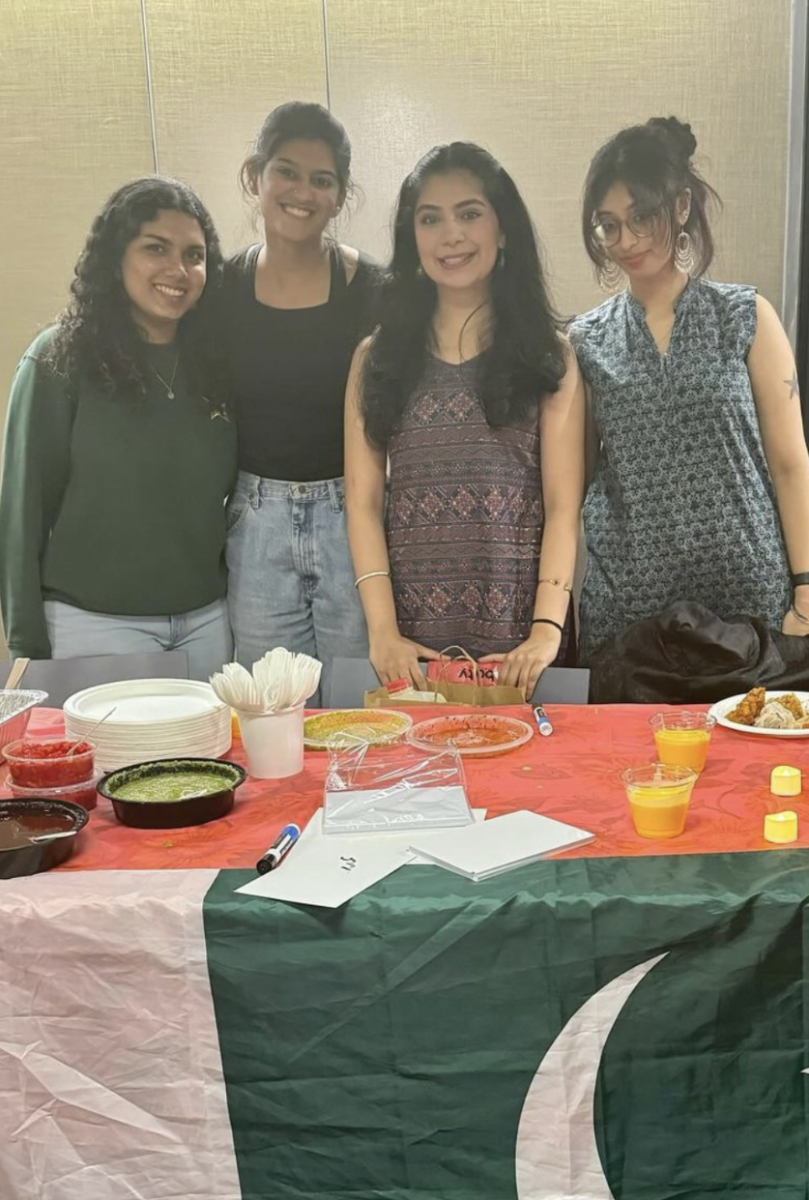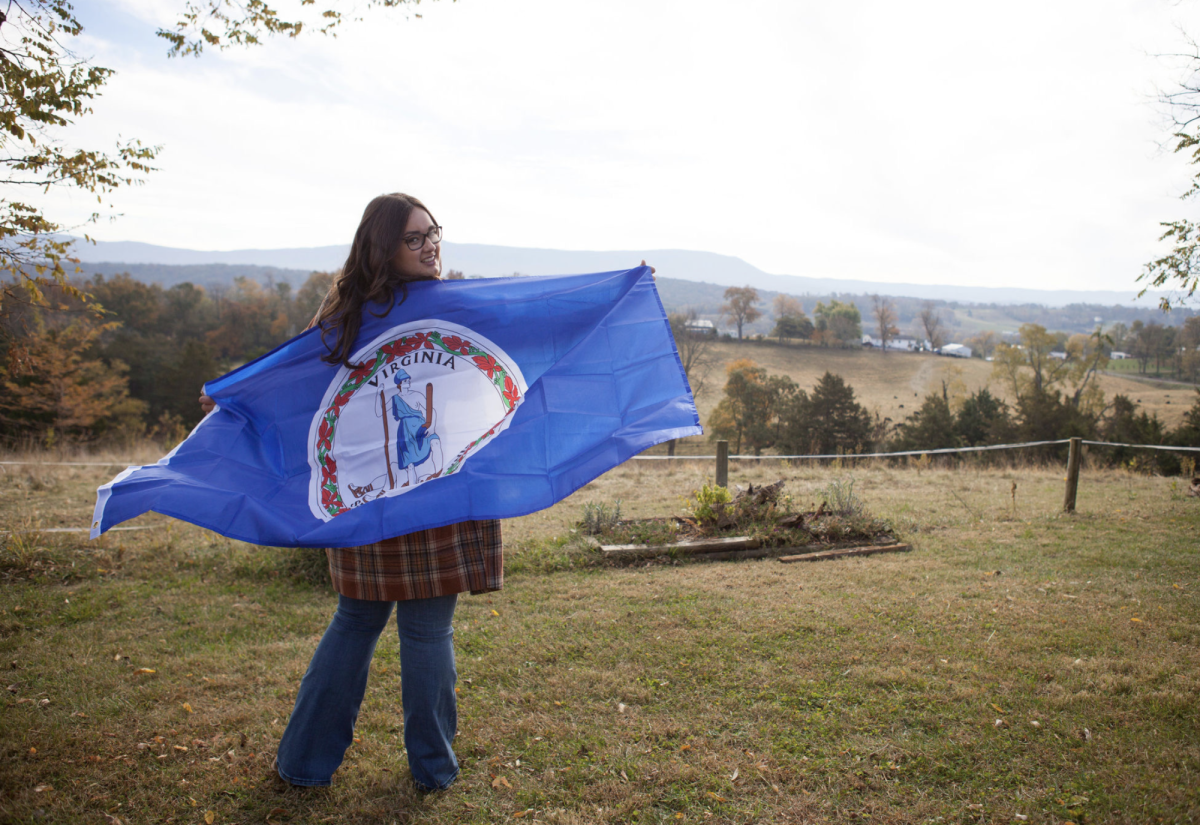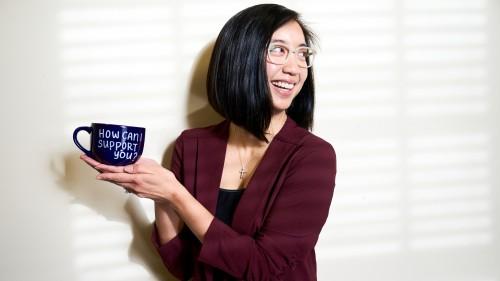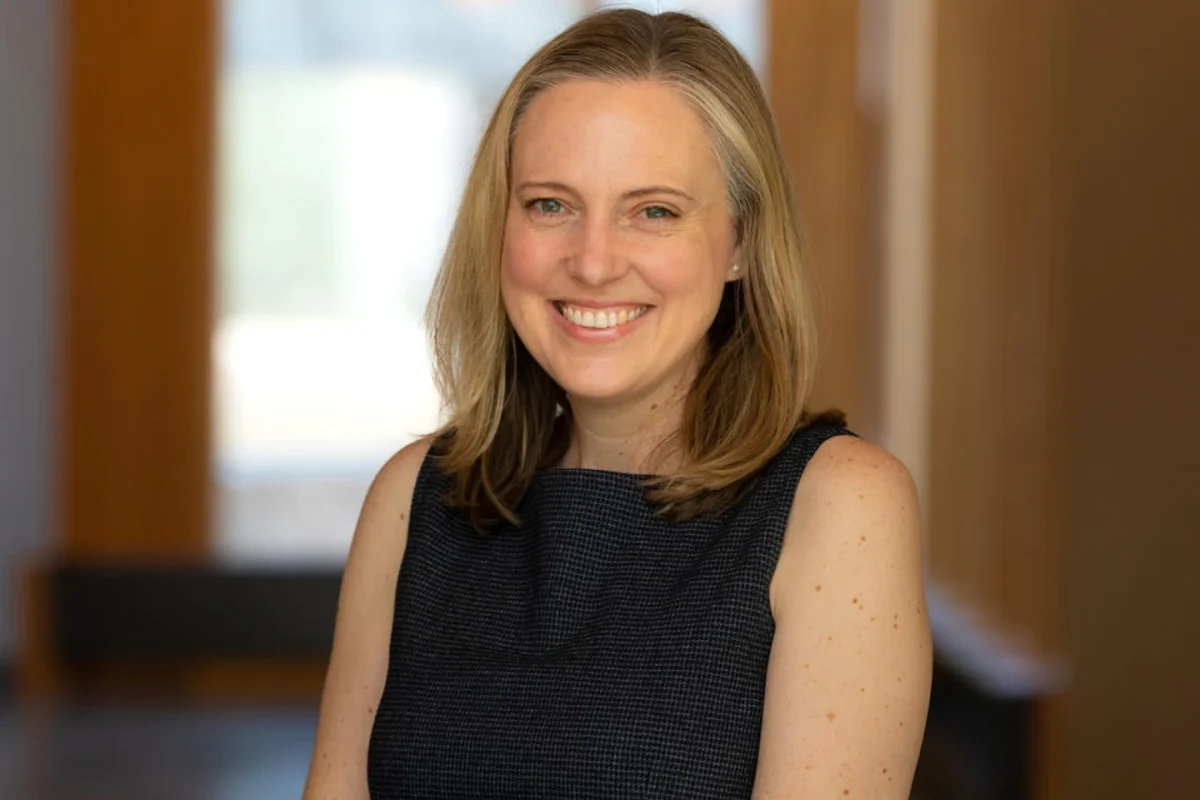Writer and activist Wendell Berry once said, “Teachers are everywhere. What is wanted is a student.” As a renowned liberal arts institution, Wellesley College is known for its distinguished faculty. However, one does not always have to look behind the lectern for a teacher. As a research and instructional librarian for the social sciences, Sarah Hoskins is one of those teachers who is not always found in the classroom.
A new addition to Wellesley’s team of research librarians this year, Hoskins generally spends the early part of each semester visiting classes to show students how to use databases and other research tools. Later in the semester, she can be found bustling around in Clapp Library, working with students individually on their research projects. Hoskins helps students find resources on a variety of subject matters, from topics like the visual culture of South Asia to technology developed by Syrian refugees. Her specialities include Economics, Anthropology, Sociology, Classics and Cognitive and Linguistic Sciences.
Hoskins’s passion for helping students, combined with her curiosity and love of learning, makes her a both a good librarian and a good teacher. She elaborated on her pathway to becoming a research librarian at Wellesley.
“I knew I wanted to stay in academia, but being a professor seemed too hard core. [As a librarian] I like that I can continue to be at a university and work on academic projects, but I don’t have to go through the tenure process… I can focus on teaching and helping students,” she said.
Teaching at a liberal arts college is also ideal for Hoskins, who appreciates an environment that promotes interdisciplinary studies. In college, Hoskins relished being able to explore and find connections between art, history, literature and politics for her degree in classical studies.
“I strongly believe in a well rounded liberal arts education,” said Hoskins. She added that being a librarian allows her to explore as many different topics as she wants. “One of the things I love about being a librarian [is] I get to read about 50 different topics a week and help people in all fields do all sorts of cool things,” she continued.
Most commonly, Hoskins loves to guide students through navigating data sources and applying data analysis techniques to the humanities and social sciences.
In her previous position at an academic library in New Jersey, Hoskins focused on digital humanities, a field that applies computational methods to various disciplines in the humanities. Now, Hoskins can apply the data more directly to student projects and is always searching for new and interesting data sources which she can connect to students.
The data must be carefully used, however. In many cases, people from both sides of the aisle can reach different conclusions and publicize different interpretations using the same dataset. Hoskins hopes to teach more data literacy to her students and discuss ways in which the data is used inappropriately.
“A conservative or liberal think tank can publish papers saying the exact opposite things using the same data to support their claims. How do you grapple with that? [Readers] might say, ‘They’ve got numbers! [You] can’t argue with the numbers.’ But depending on the scale you use, conclusions can look really different,” she said.
Hoskins also hopes to teach students of the ways that data can and has been misused so they can be aware of it in the future. In explaining this, she referred to the Integrated Public Use of Microdata Series (IPUMS), stating, “I’d do more teaching around evil ways you could use the data. IPUMS says use it for good, never for evil—what are some ways this could be used in misleading ways to support research?”
She talked about a bill that has been introduced to the House and Senate floors, HB 482 and SB 103, which aims to do just that.
“[The bill] is something I’m really upset and angry about right now. [It prohibits] federal funding that puts together location information on racial data and access to affordable housing [which would make] proving racial bias, gerrymandering, [and] fair housing [difficult]. This would cripple the ability of the Census Bureau to do its job,” said Hoskins.
Hoskins’s love of learning and passion for helping students conduct research is evident through her work outside of Wellesley as well. In March, she volunteered at DataRescue Boston, an event in which librarians, scientists, activists and other volunteers work to find and back up federal data that is vulnerable to being taken down.
“People are worried that EPA data or data related to climate change will be in danger so people started archiving and saving it in places that would be safe from government takedown,” she explained.
When Hoskins is not helping protect data from disappearing, you might find her looking for Benjamin Franklin statues around the world (her goal is to take a picture with 100 and she has already found 48) or in bars competing in trivia (being a librarian helps sometimes).







